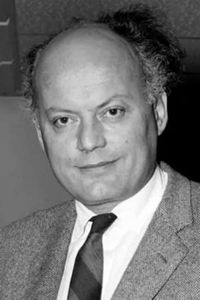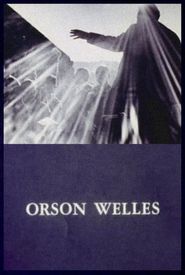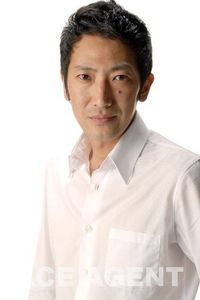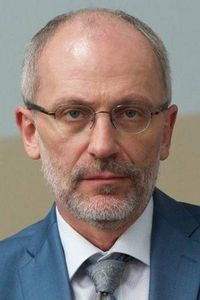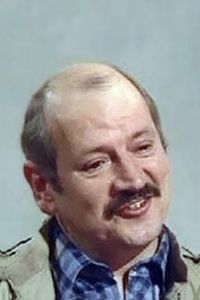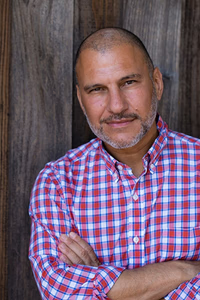Frédéric Rossif, a renowned French filmmaker, left an indelible mark on the world of documentary directing, showcasing his versatility by frequently incorporating archive footage into his projects.
Throughout his illustrious career, Rossif's thematic focus consistently revolved around three primary areas of interest: the natural world, 20th-century historical events, and the works of contemporary artists.
Notably, Rossif developed a propensity for collaborating with esteemed composers, including the illustrious Maurice Jarre and the visionary Vangelis, further underscoring his dedication to elevating the artistic quality of his films.
As a result of his tireless efforts, Rossif's body of work stands as a testament to his unwavering passion for storytelling and his ability to craft captivating documentaries that have left a lasting impact on audiences worldwide.
Person Biography:
Frédéric Rossif was born in France and began his career in the film industry, quickly establishing himself as a talented and innovative documentary director. Throughout his life, Rossif remained committed to his artistic vision, consistently pushing the boundaries of his craft and exploring new themes and subjects.
Throughout his career, Rossif received widespread recognition for his work, including numerous awards and accolades. Despite his success, Rossif remained humble and dedicated to his craft, continuing to produce high-quality documentaries that captivated audiences and inspired a new generation of filmmakers.
Today, Frédéric Rossif is remembered as a pioneering figure in the world of documentary filmmaking, leaving behind a legacy that continues to inspire and influence filmmakers around the world.
Noted filmmaker, Rossif, was born in the picturesque city of Cetinje, situated in the Balkan nation of Montenegro, which was then part of the former Yugoslavia. Tragedy struck early in his life when his family fell victim to the devastating effects of World War II. Undeterred, Rossif pursued his education in the Eternal City of Rome during the late 1930s and early 1940s, laying the groundwork for his future endeavors. The tumultuous years of World War II led Rossif to join the French Foreign Legion's prestigious 13th Demi-Brigade in 1944, where he undoubtedly honed his skills and gained valuable life experience. Following the war, Rossif relocated to the City of Light, Paris, in 1945 and established himself as a prominent figure in the city's vibrant cultural scene. He became a regular at the esteemed Club Saint-Germain, where he had the privilege of befriending and rubbing shoulders with some of the most influential and iconic figures of his time, including the renowned philosopher Jean-Paul Sartre, the celebrated writer Boris Vian, the Nobel laureate Albert Camus, the literary giant Ernest Hemingway, and the acclaimed author Malcolm Lowry.
From 1948 onwards, Rossif embarked on a prolonged and fruitful collaboration with the Cinémathèque Française, a prominent film institution. This partnership led to the organization of an avant-garde film festival at Antibes, which took place over the course of two years, spanning from 1949 to 1950.
In 1952, Rossif joined the Office de Radiodiffusion-Télévision Française (ORTF),a French public service broadcaster, and became involved in various projects. Some of these initiatives included the production of "Cinq colonnes à la une", a news program that showcased the latest developments in the world of cinema, as well as "Éditions spéciales", a series of special editions that featured unique and innovative storytelling approaches.
Additionally, Rossif worked on "La Vie des animaux", a documentary series that explored the fascinating world of animals and their habitats. Furthermore, he also contributed to "Cinépanorama", a program hosted by renowned film critic François Chalais, which provided audiences with a comprehensive overview of the latest film releases and industry trends.
In the latter half of the 1950s, Rossif embarked upon a creative journey, venturing into the realms of writing and directing his own films, which ultimately led to a considerable measure of success.
One of his most notable accomplishments during this period was the 1963 film "Mourir à Madrid", a cinematic masterpiece that poignantly captured the essence of the Spanish Civil War. This remarkable film went on to receive the prestigious Prix Jean Vigo award, and was also nominated for an Academy Award in the category of Documentary Feature.
Furthermore, several of Rossif's 1960s films featured the renowned composer Maurice Jarre, whose scores added an additional layer of depth and emotion to these already powerful cinematic works.
In 1970, Rossif completed his only non-documentary film to date, "Aussi loin que l'amour", a cinematic endeavour that showcased the talents of the enigmatic Salvador Dalí, who took on the role of an actor in this unique and captivating production.
In the early 1970s, Rossif, a renowned individual, had the privilege of crossing paths with the illustrious Vangelis, a master of his craft, and the two went on to collaborate on a multitude of film projects, including a series of wildlife documentaries that showcased their artistic synergy.
These documentaries, which included L'Apocalypse des animaux, L'Opéra sauvage, and La Fête sauvage, were a testament to the creative partnership between Rossif and Vangelis, as they brought their unique perspectives and skills to the table to produce a body of work that was both visually stunning and aurally captivating.
As a result of their collaboration, some of the music from these films was eventually released on CD, allowing audiences to appreciate the duo's artistic vision in a new and innovative way.
One particular piece of music, "La Petite Fille de la Mer", which was composed by Vangelis for an ocean scene in the 6th episode of L'Apocalypse, has since become a modern classic, a true masterpiece that has stood the test of time and continues to inspire and delight audiences to this day.
Rossif Sénès, a renowned documentary filmmaker, dedicated a significant portion of his career to creating a documentary masterpiece, L'Arbre de vie, which was released in 1980 and centered around the remarkable life and work of the illustrious Vangelis.
Throughout his illustrious career, Rossif consistently pushed the boundaries of documentary filmmaking, exploring a wide range of themes and subjects. His impressive body of work was marked by a deep sense of curiosity and a passion for storytelling.
In the latter stages of his career, Rossif continued to be driven by a desire to create documentaries that would leave a lasting impact on his audience. One of his most notable projects during this period was De Nuremberg à Nuremberg, a monumental documentary that examined the historical significance of World War II and its lasting impact on global politics.
In addition to his work on De Nuremberg à Nuremberg, Rossif also dedicated a significant amount of time and energy to creating Pasteur le Siècle, a documentary that commemorated the 100th anniversary of L'Institut Pasteur. This project marked a departure from his usual themes and was a testament to his versatility as a filmmaker.
Sadly, Rossif's life was cut short in 1990, and he was laid to rest in the historic Cimetière du Montparnasse in Paris. Despite his untimely passing, his legacy continues to be felt in the world of documentary filmmaking, and his body of work remains a testament to his skill and dedication as a storyteller.
